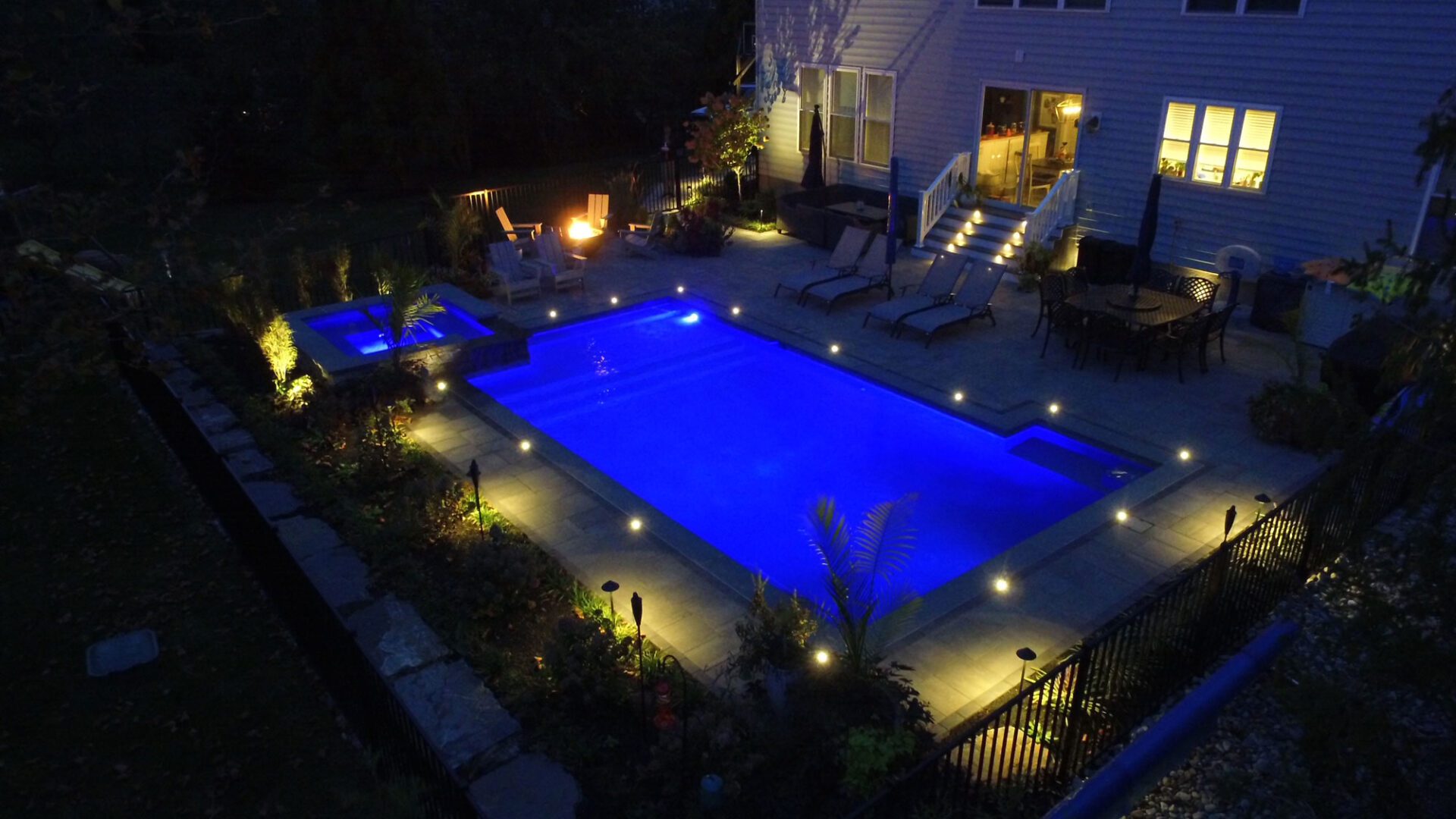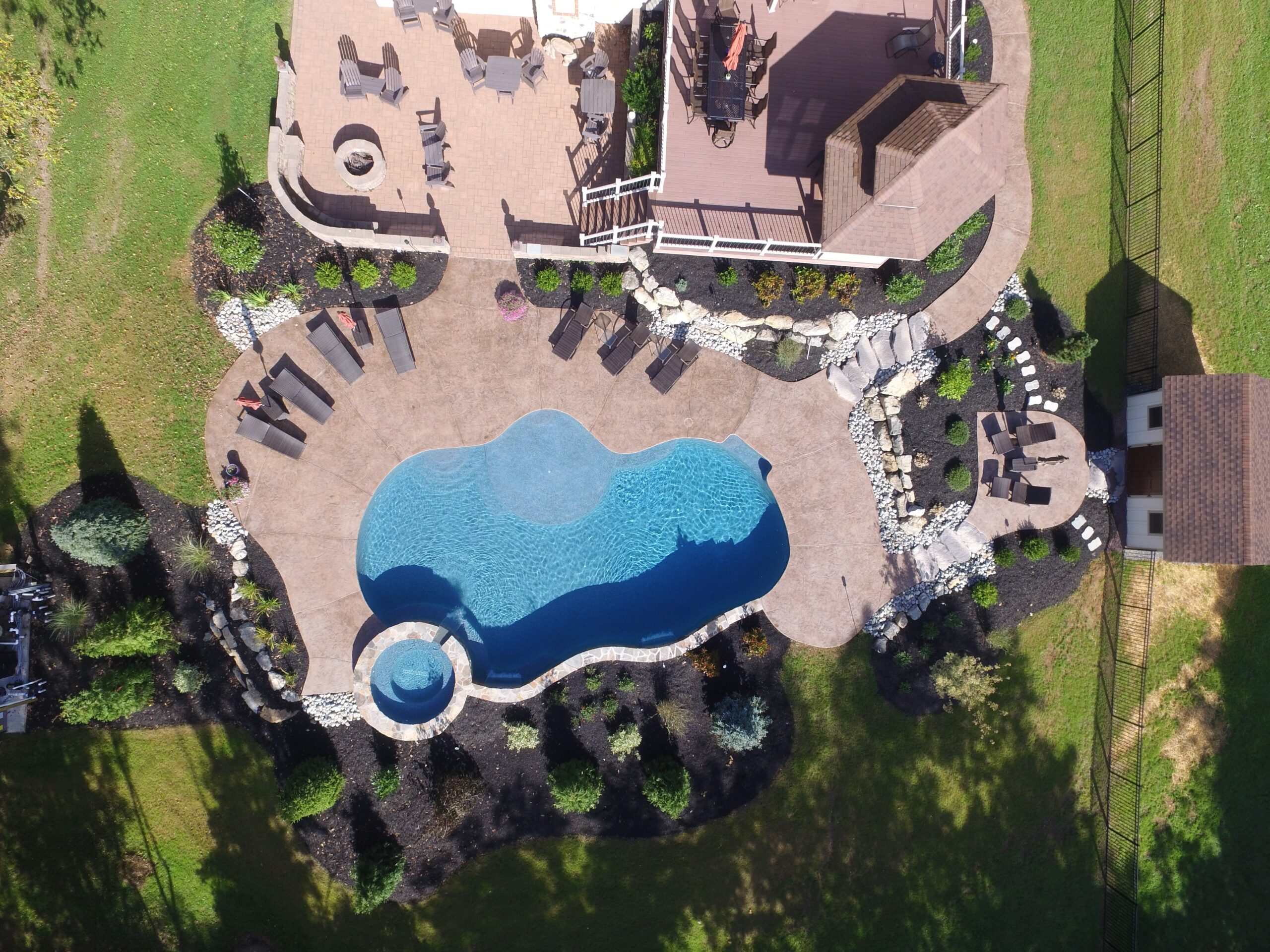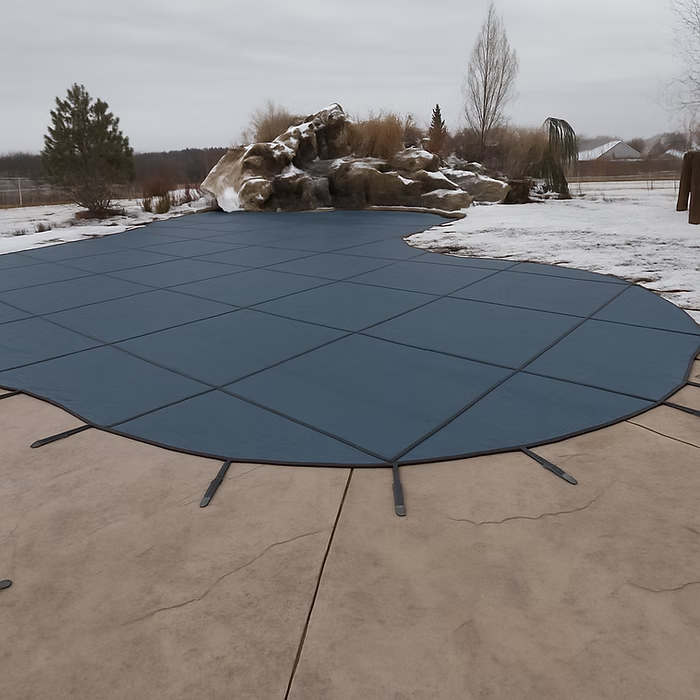Scott Payne Custom Pools is not just another pool construction company. We are dedicated to creating custom pools in Richboro, PA that are more than just stunning – they’re safe and well-maintained, too. Our wealth of knowledge and expertise extends beyond pool construction and into essential pool management practices.
One common question we get asked is whether a pool should be closed after every use. The answer is multifaceted, and addressing it requires understanding several aspects of pool safety and maintenance.
Never Leave Your Pool Gate Open
Pool safety is not just about being cautious when you’re in the water; it’s also about what happens when you’re not. The area surrounding your pool can pose significant risks if not adequately secured.
Leaving your pool gate open or a side unprotected can invite unfortunate accidents. Unsupervised children or pets could wander in, and the risk of accidental falls or potential drowning incidents increases. Always ensure that your pool area is enclosed and has a self-closing, self-latching gate to prevent unauthorized access.
By implementing these measures, you not only make your pool area safer but also enjoy peace of mind, knowing that your pool is secure even when you’re not around.
Test Your Pool Regularly
Maintaining the right water quality in your pool is critical. This means regularly testing your pool water to ensure the pH and chlorine levels are at the optimal range.
Why does this matter? Unbalanced pH can cause eye and skin irritation for swimmers, while improper chlorine levels can allow bacteria and algae to thrive. Regular testing helps you keep these factors in check and maintain a clean, healthy pool.
As a rule of thumb, your pool water should be tested at least once a week. However, during peak usage or after a heavy storm, more frequent testing may be necessary.
Winterize Your Pool at the End of the Season
As the swimming season winds down, it’s time to think about winterizing your pool. This process involves preparing your pool for the winter months to protect it from potential damage caused by freezing temperatures.
Winterizing involves several steps, including adjusting chemical levels, lowering the water level, and properly covering your pool. This process is crucial as it prevents damage to your pool components and keeps the water clean, making your spring opening much easier.
Typically, you should begin winterizing your pool when the temperature consistently drops below 60 degrees Fahrenheit. It’s worth noting that an improperly winterized pool can lead to costly repairs come spring.
Call Scott Payne Custom Pools With All Pool Questions
At Scott Payne Custom Pools, we aim to make pool ownership a hassle-free and enjoyable experience for you. We believe in proactive communication and are always ready to answer your questions.
When you need the best pool companies in Bucks County, PA, don’t hesitate to reach out. Our team of experts is always here to guide you, ensuring your pool remains a source of joy, relaxation, and fun-filled memories. Let’s make your pool journey together a splash!




